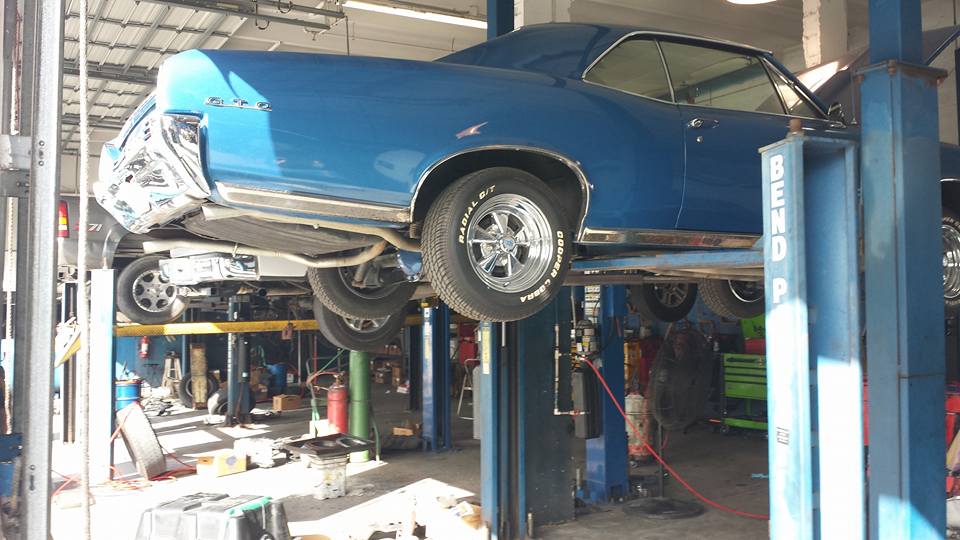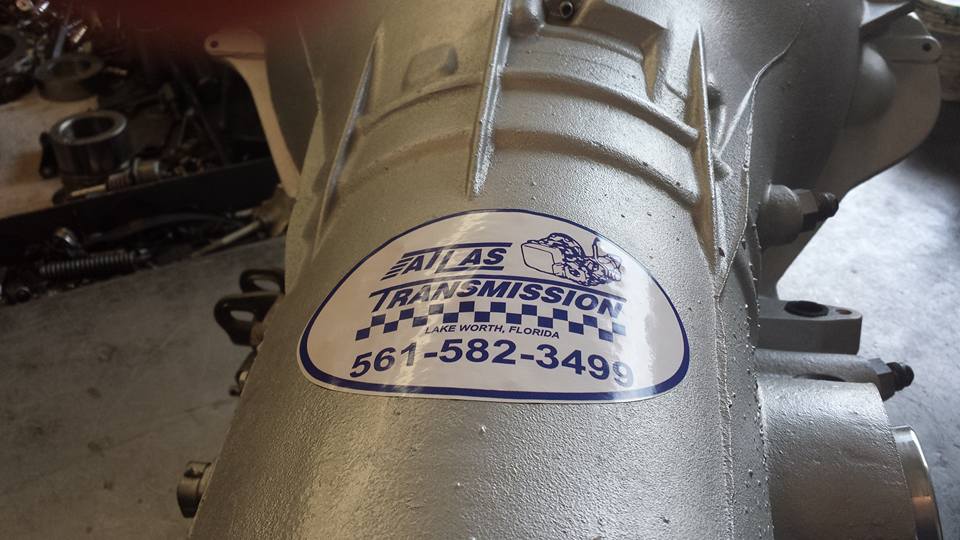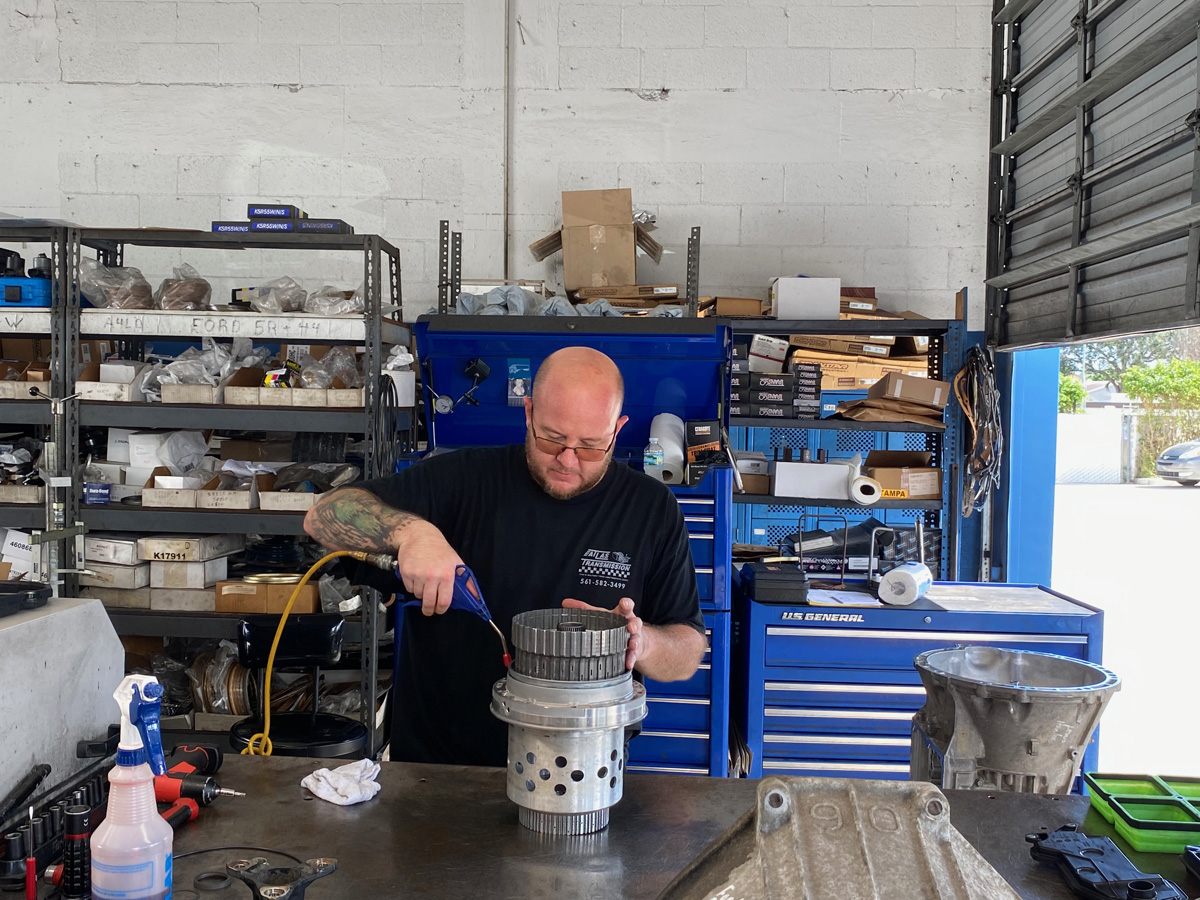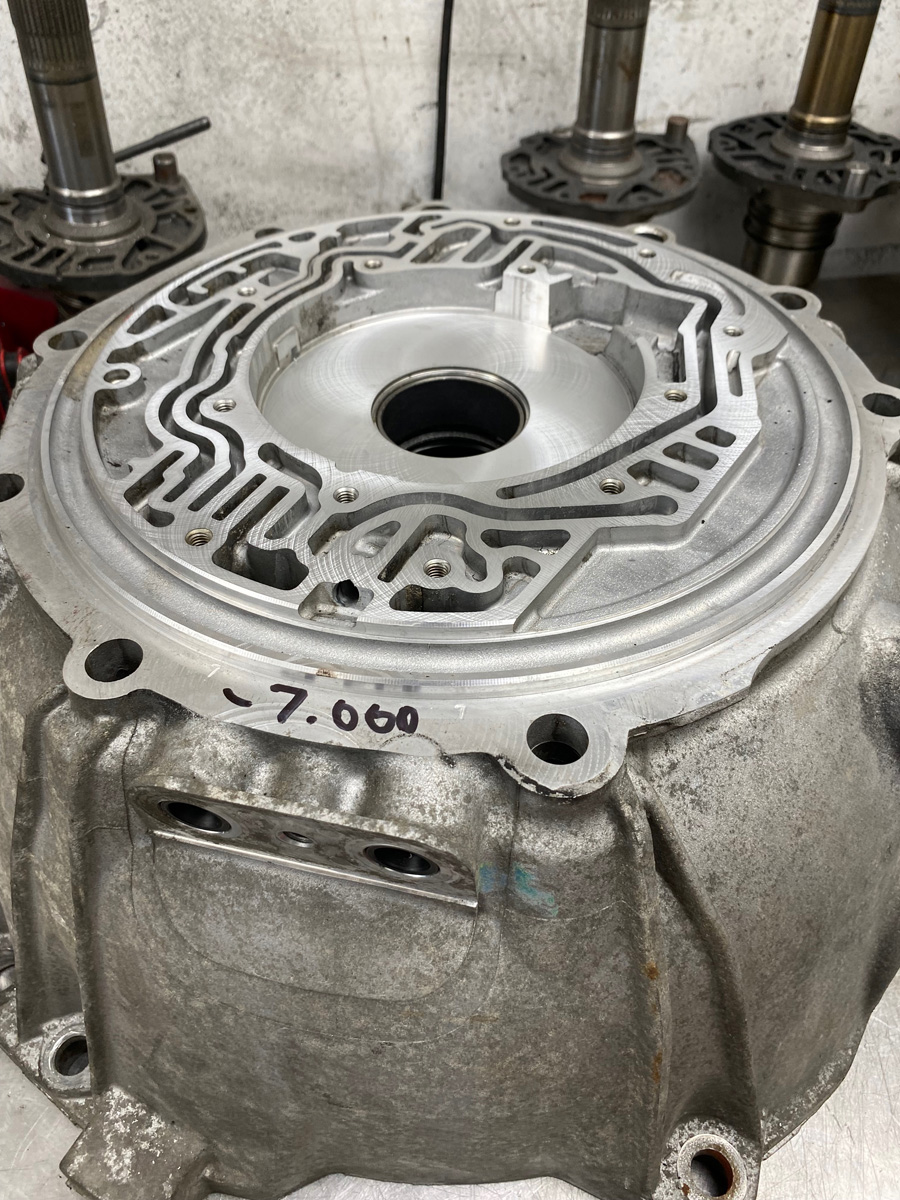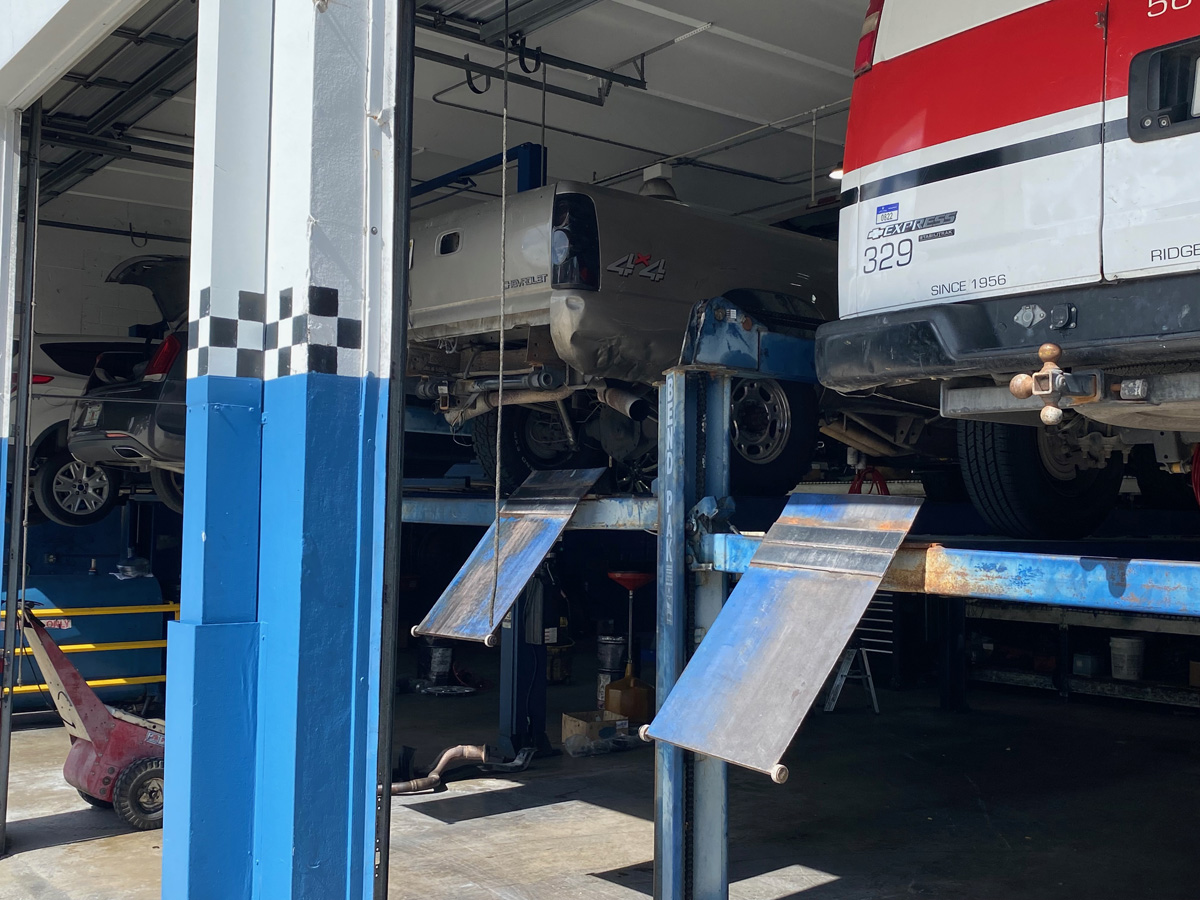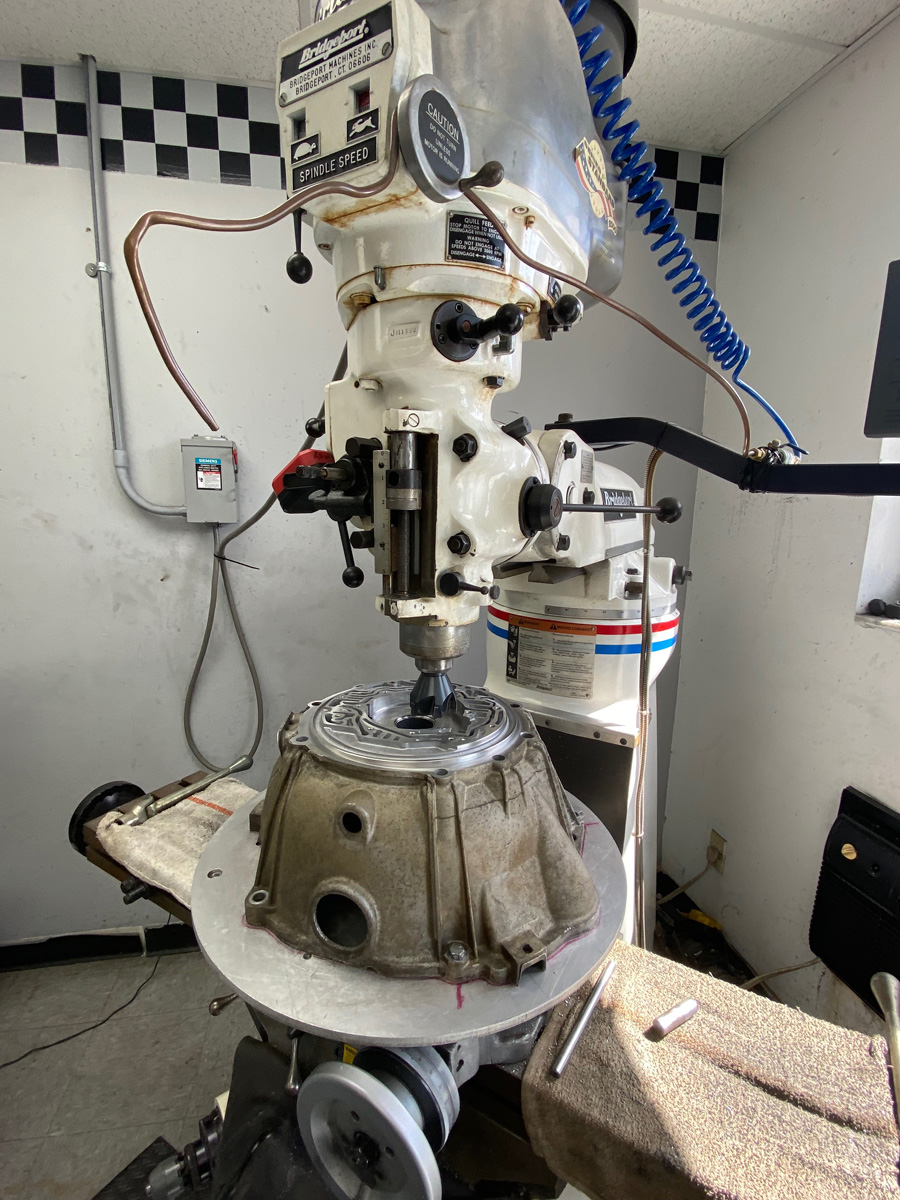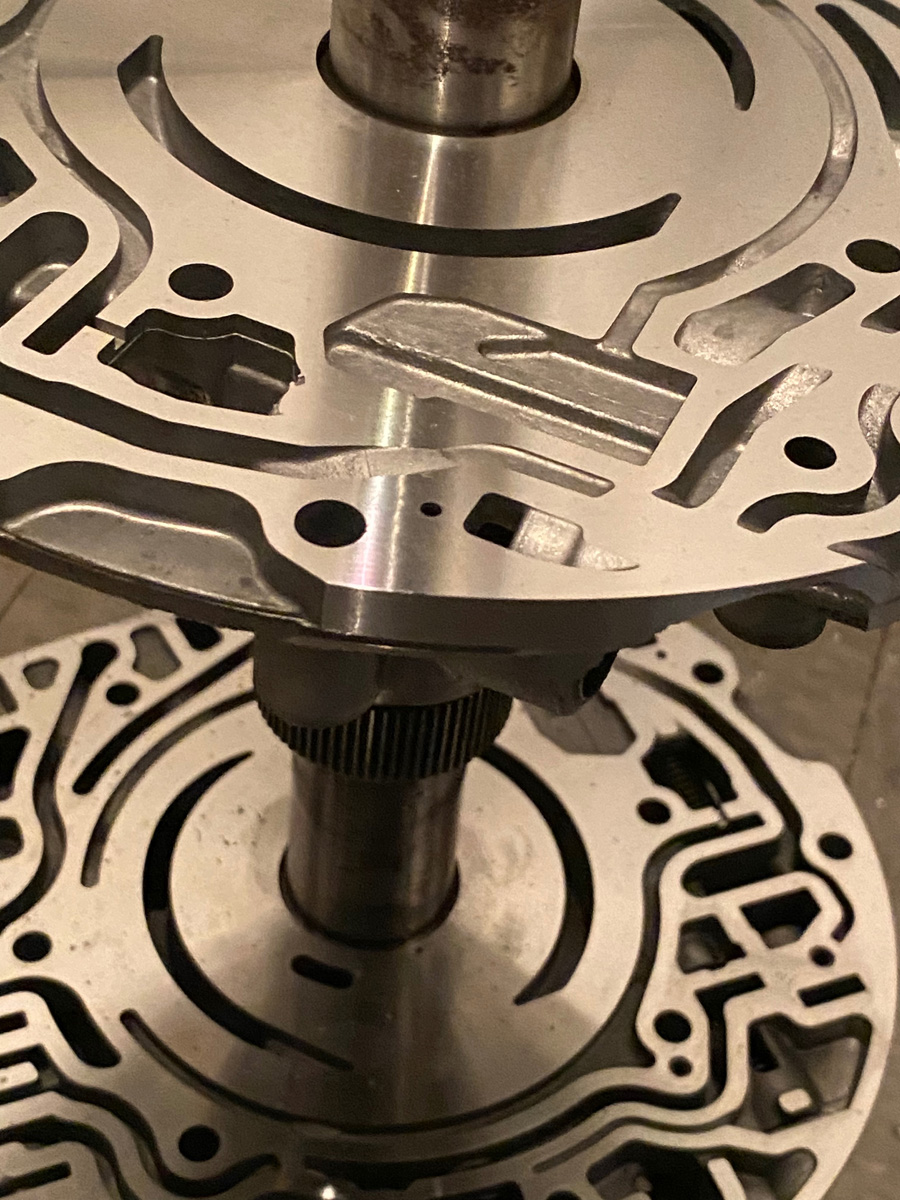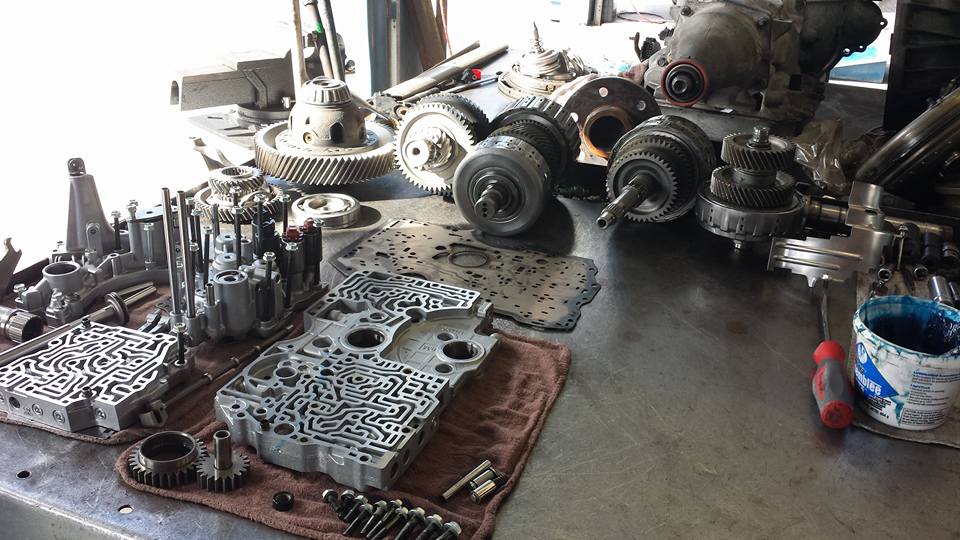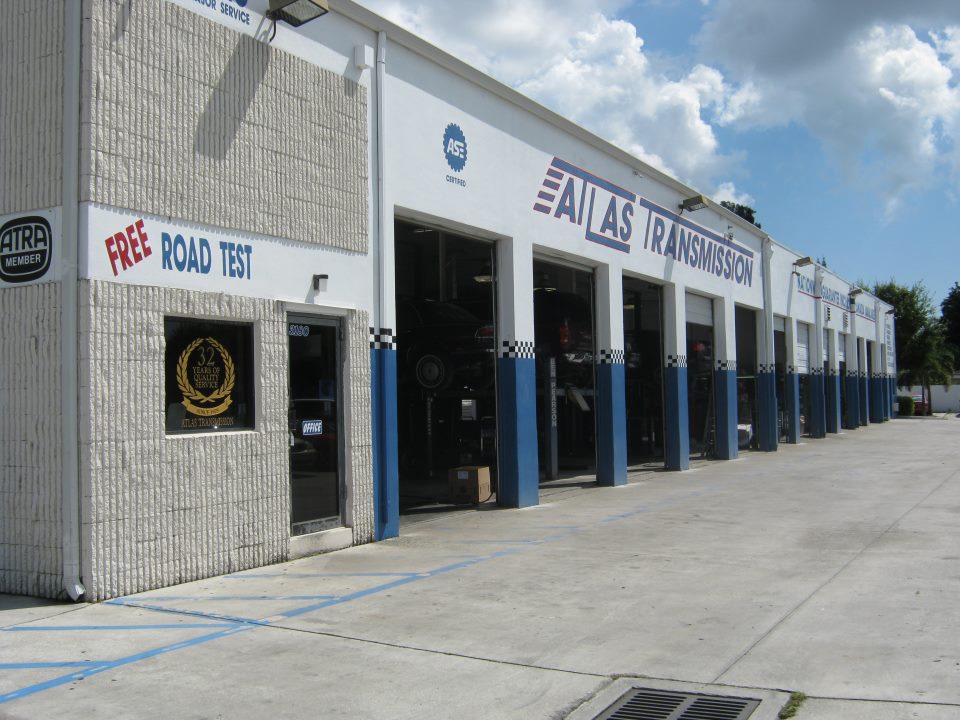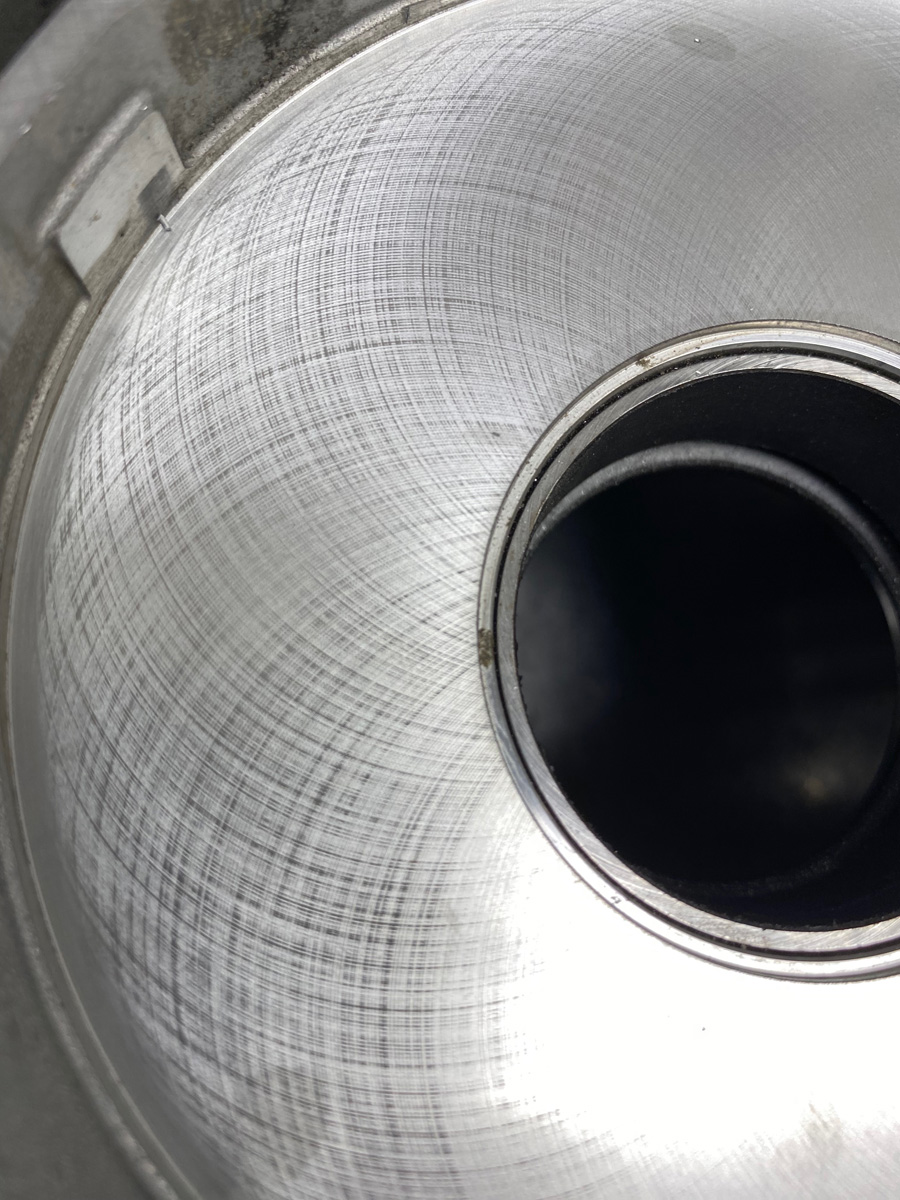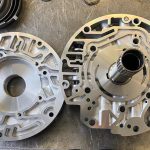Automatic transmission repair can often seem daunting. This guide helps you understand common transmission problems, essential maintenance, and when to seek professional help.
Key Takeaways
- Understanding the components and functions of automatic transmissions is crucial for effective maintenance and early problem detection.
- Promptly addressing common symptoms such as unusual noises and fluid leaks can prevent severe damage and costly repairs.
- Regular professional inspections and adhering to routine maintenance schedules significantly enhance the longevity and performance of automatic transmissions.
Understanding Automatic Transmissions
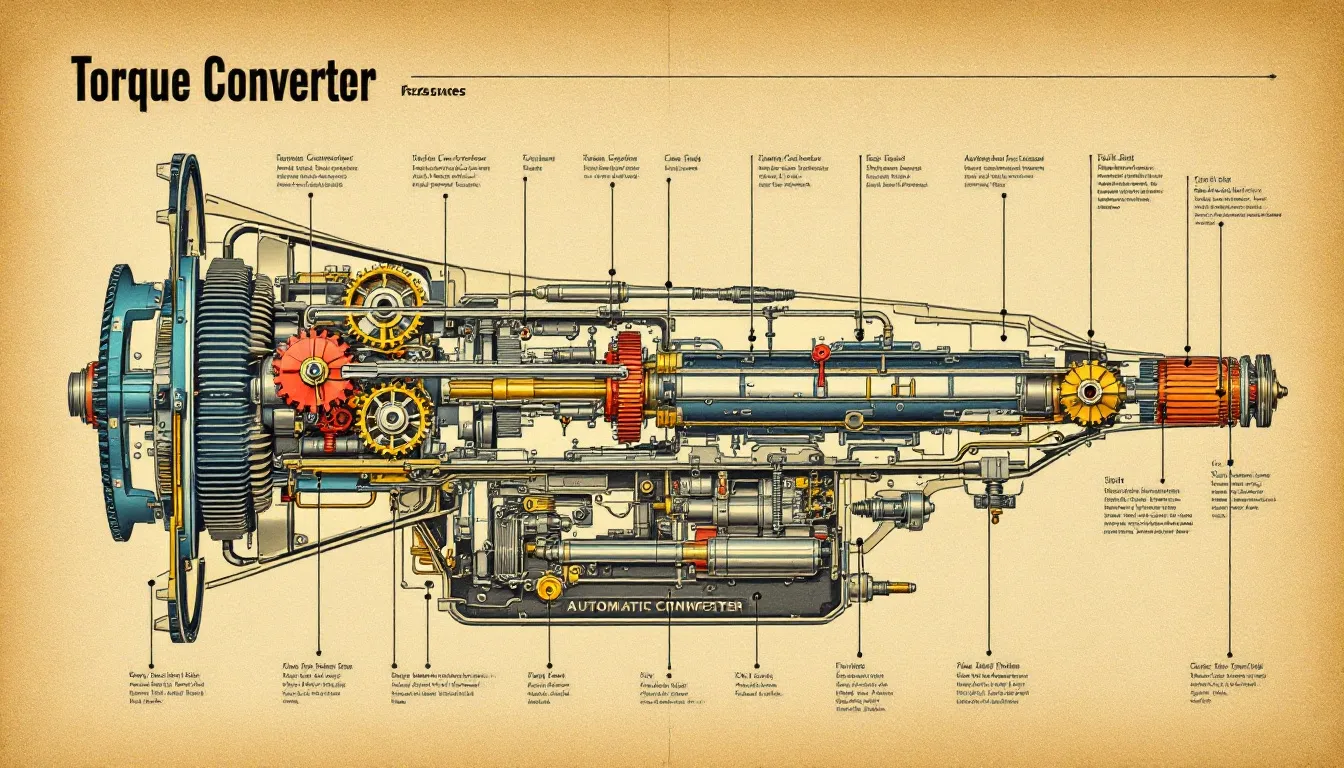
Automatic transmissions are marvels of engineering designed to make our driving experience as smooth and effortless as possible. At the heart of an automatic transmission lies the planetary gear set, a combination of a sun gear, planet gears, and a ring gear that work together to provide various forward and reverse speeds. This intricate system allows your car’s automatic transmission to change gears seamlessly, converting engine speed into wheel speed for optimal performance.
The clutch pack, consisting of multiple discs arranged in a drum, plays a crucial role in gear shifts. Hydraulic pressure acts on the piston within the drum to engage the clutch pack or bands, facilitating the gear change. This is where the magic happens – the smooth transitions between gears that we often take for granted.
Equally important is the valve body, located at the bottom of the transmission assembly. This component directs hydraulic fluid to various valves, engaging the clutch pack or bands and ensuring the right gear is selected. Understanding these key elements of your car’s automatic transmission can help you appreciate the complexity and importance of regular maintenance.
Common Automatic Transmission Problems
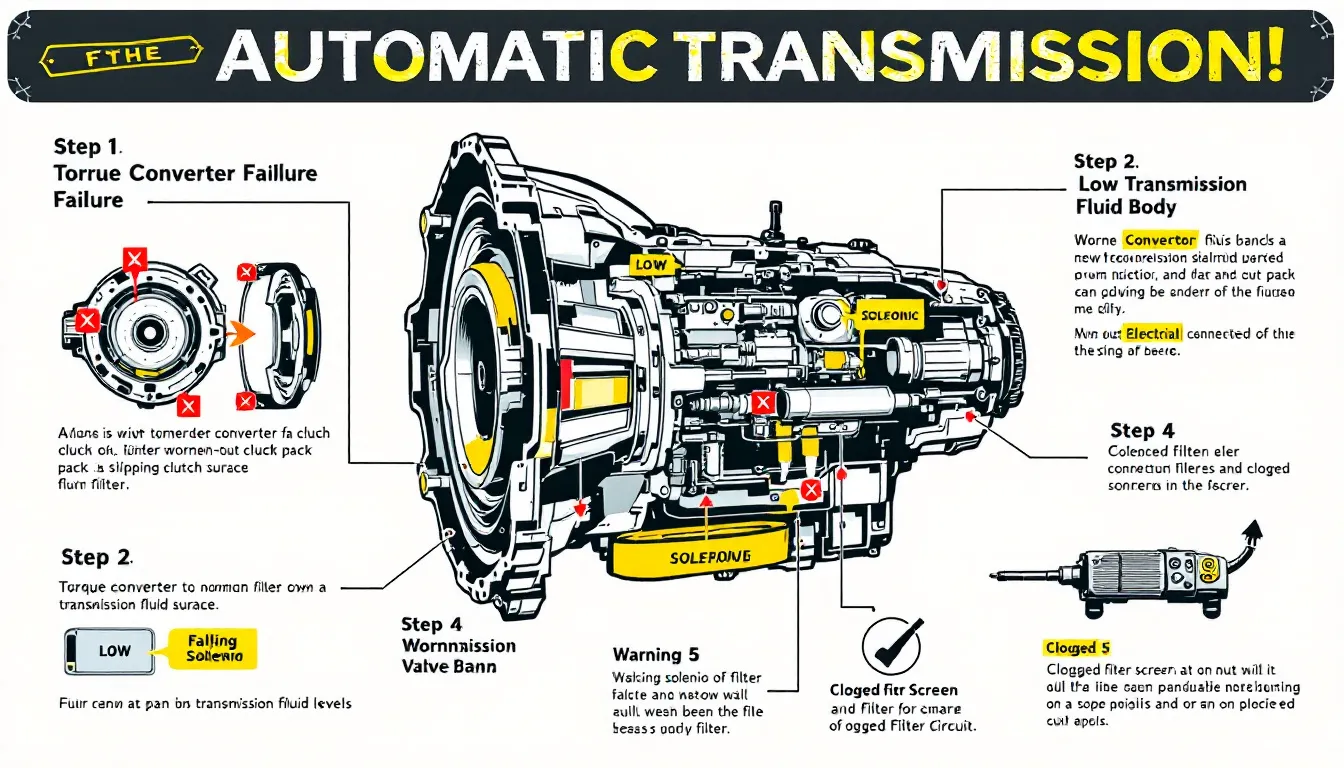
Even the most advanced automatic transmissions are not immune to problems. Common indicators that something might be wrong include puddles of transmission fluid under your car, unusual sounds, erratic shifting, and difficulties in shifting gears. These signs should never be ignored, as they often point to underlying issues that could lead to costly transmission repairs if left unchecked.
Transmission issues can arise from various causes. Damaged components might make it difficult for your transmission to stay engaged, while low transmission fluid levels can cause slipping gears and erratic shifting. Recognizing these symptoms early on can prevent severe transmission failure and save you from extensive repairs related to a transmission problem.
Regular maintenance and monitoring are key to avoiding automatic transmission problems. Staying vigilant and addressing unusual signs promptly ensures your transmission remains in good working order, providing a smooth and reliable driving experience.
Diagnosing Transmission Issues
Early diagnosis of transmission issues can prevent significant problems. Strange noises such as clunking, whining, or grinding often indicate internal damage requiring immediate attention.
Regular inspections help identify minor issues before they escalate into major repairs. For example, low transmission fluid levels can cause serious problems with gear shifting and mechanical failure if not addressed promptly. Regularly checking the transmission fluid can help identify leaks and ensure the fluid is at the correct level.
The check engine light can indicate a need for immediate transmission service, especially if accompanied by symptoms like difficulty shifting gears or unusual grinding noises. Regular inspection and maintenance of your transmission fluid can prevent these issues from escalating into costly repairs.
Importance of Transmission Fluid
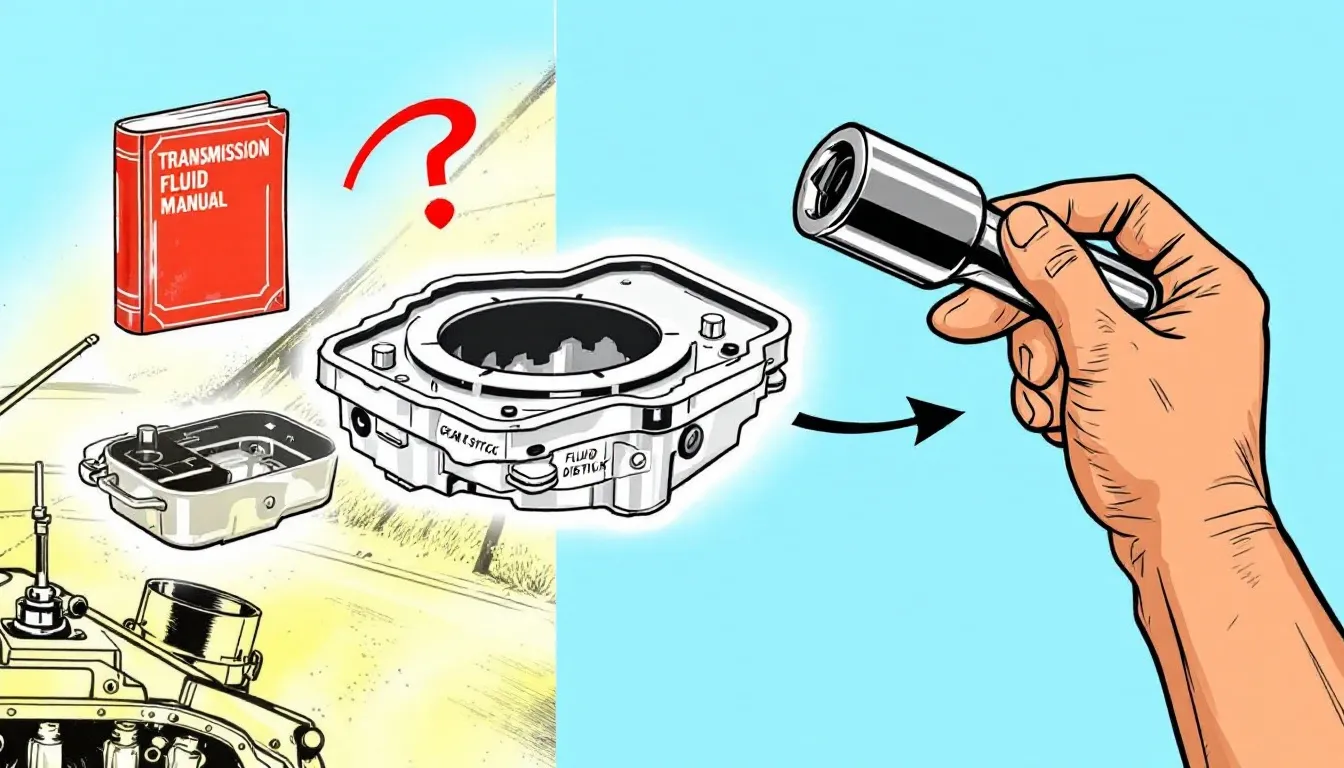
Transmission fluid keeps the system cool, lubricated, and aids in smooth gear shifts. It manages the heat generated by moving parts, preventing overheating and ensuring seamless component operation.
Correct transmission fluid levels are vital for optimal performance. Low fluid levels can lead to erratic shifting, loss of hydraulic pressure, and overheating, causing significant damage over time. Maintaining clean transmission fluid is essential to prevent these issues.
Signs of transmission fluid issues, such as burning odors or dirty fluid, should be addressed immediately to avoid costly repairs.
Transmission Fluid Maintenance
Routine transmission fluid maintenance is essential for the health of your automatic transmission. Following manufacturer-recommended service intervals ensures that the fluid remains clean and free of debris, which is crucial for the smooth operation of the transmission. Typically, a transmission service should occur every 30,000 miles.
Regularly changing the transmission filter ensures proper fluid flow and prevents issues like slipping or difficulty shifting. Full synthetic fluid is recommended for recent vehicle makes to ensure optimal performance.
Vehicles carrying heavy loads or frequently engaging in stop-and-go traffic require more frequent transmission fluid services. Consulting your owner’s manual for service intervals and following a routine maintenance schedule can help you avoid costly repairs.
Professional Transmission Inspection
Regular professional transmission inspections are vital for maintaining the health and longevity of your vehicle. Certified specialists can detect subtle transmission problems that may not be obvious to the untrained eye. Annual inspections with a certified technician can help detect issues early and maintain transmission health.
Atlas Transmission, located at 3180 S Military Trail, Lake Worth Beach, FL 33463, offers comprehensive transmission services with over 47 years of experience in transmission repair. Their expert team can provide thorough inspections, ensuring your transmission remains in top condition.
Repair vs. Replacement
When facing transmission problems, deciding between repair and replacement can be challenging. Repairing a transmission typically costs around $900, while replacing it can range from $1,000 to $7,000, and up to $10,000 for luxury or unique models. In some cases, replacing an older transmission may be cheaper than extensive repairs, especially for older vehicle models.
Rebuilding a transmission generally costs less than replacement and extends its lifespan while addressing specific issues. However, it can take significantly longer than simply replacing the transmission. New transmissions, free from wear, ensure optimal performance.
Early detection of transmission issues can save significant costs in repairs and replacements. For older vehicles with high mileage, replacing the transmission may be more sensible.
Choosing a Reliable Transmission Shop
A reliable transmission shop is crucial for effective repair. Experienced, knowledgeable technicians can diagnose and fix issues effectively. Customer reviews on platforms like Google and Yelp can help identify a shop’s reputation and reliability.
Good communication from the shop during the repair process indicates a customer-focused approach. Atlas Transmission, with its wealth of experience and customer-centric service, is a prime example of a trustworthy shop for all your transmission needs.
Preventive Measures for Longevity
Preventive measures can significantly extend the life of your transmission. Routine checks can enhance vehicle performance and fuel efficiency by ensuring smooth transmission operation. Maintaining the cooling system prevents overheating of both the engine and transmission fluid.
Using the recommended type of transmission fluid is crucial for optimal performance and longevity. Additionally, avoiding shifting gears while the vehicle is moving and not driving on mismatched or spare tires for extended periods prevents unnecessary strain on the transmission.
Addressing Transmission Leaks
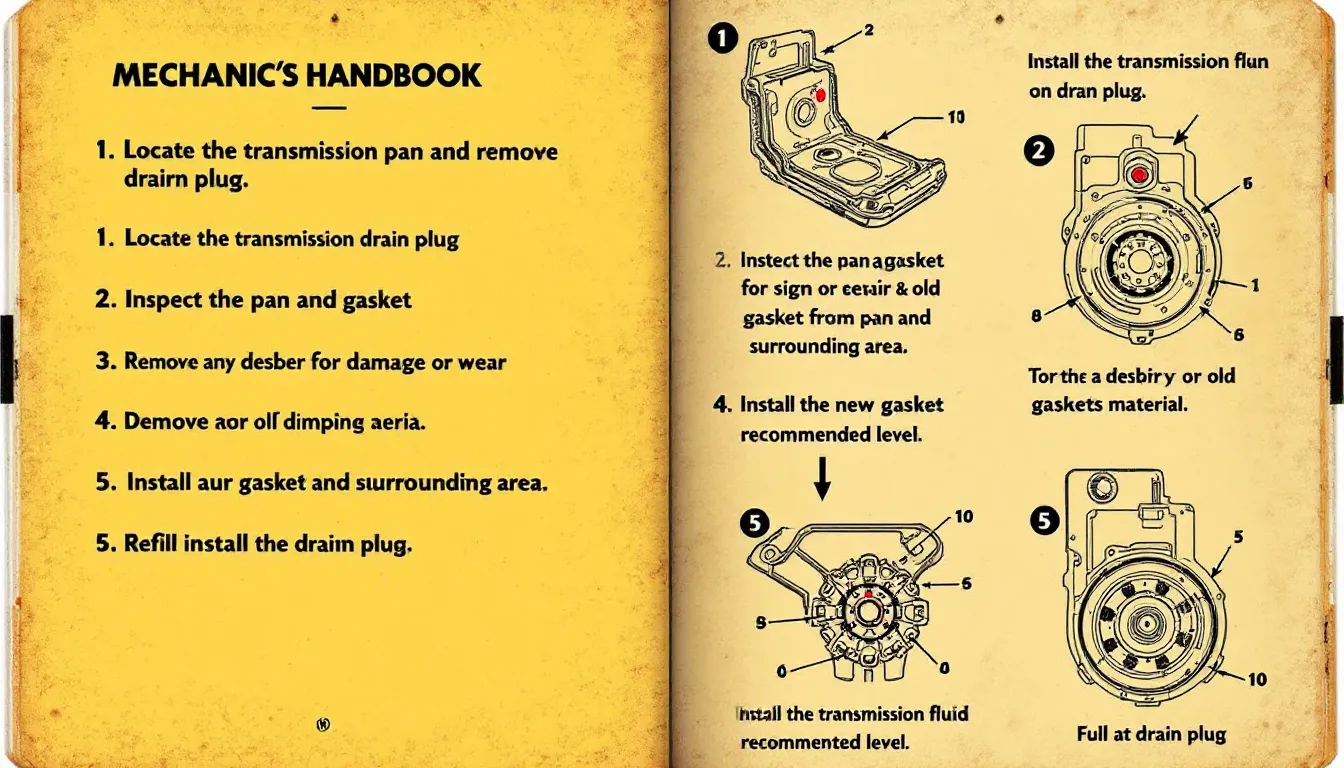
Transmission leaks can lead to serious problems if not addressed promptly. Common causes include a damaged transmission pan from road debris, worn seals, and a faulty pan gasket. These issues can cause fluid leaks from parts like the driveshaft or output shaft.
Transmission fluid can also leak through worn or damaged fluid lines, exacerbated by heat or road debris. Promptly addressing these leaks can prevent significant damage and maintain transmission system efficiency.
The Role of the Torque Converter
The torque converter is a critical component of an automatic transmission. It operates as a fluid coupling device, transferring power from the engine to the transmission, allowing the engine to run while the vehicle is stationary.
The torque converter’s design includes an impeller and turbine that manage power flow and speed, crucial for vehicle performance. A failing torque converter can lead to poor acceleration and increased engine strain.
Upgrading Your Transmission System
Upgrading your transmission system can offer various benefits, especially with modern automatic transmissions like dual-clutch and continuously variable transmission, which provide smoother and more efficient performance.
When considering an upgrade, assess your vehicle’s needs and consult with transmission specialists to determine the best options. Upgrading can enhance your driving experience and ensure peak vehicle performance.
Cost Considerations
Cost is a significant factor in transmission repair and replacement. Labor costs for major repairs can add $1,000 to $2,000 due to the complexity of disconnecting parts and accessing the transmission. Common repairs like a transmission fluid flush average between $75 and $150, while fixing leaks typically costs between $150 and $200.
Transmission repair parts may not always be in stock, leading to potential delays and additional costs while waiting for orders.
Signs You Need Immediate Transmission Service
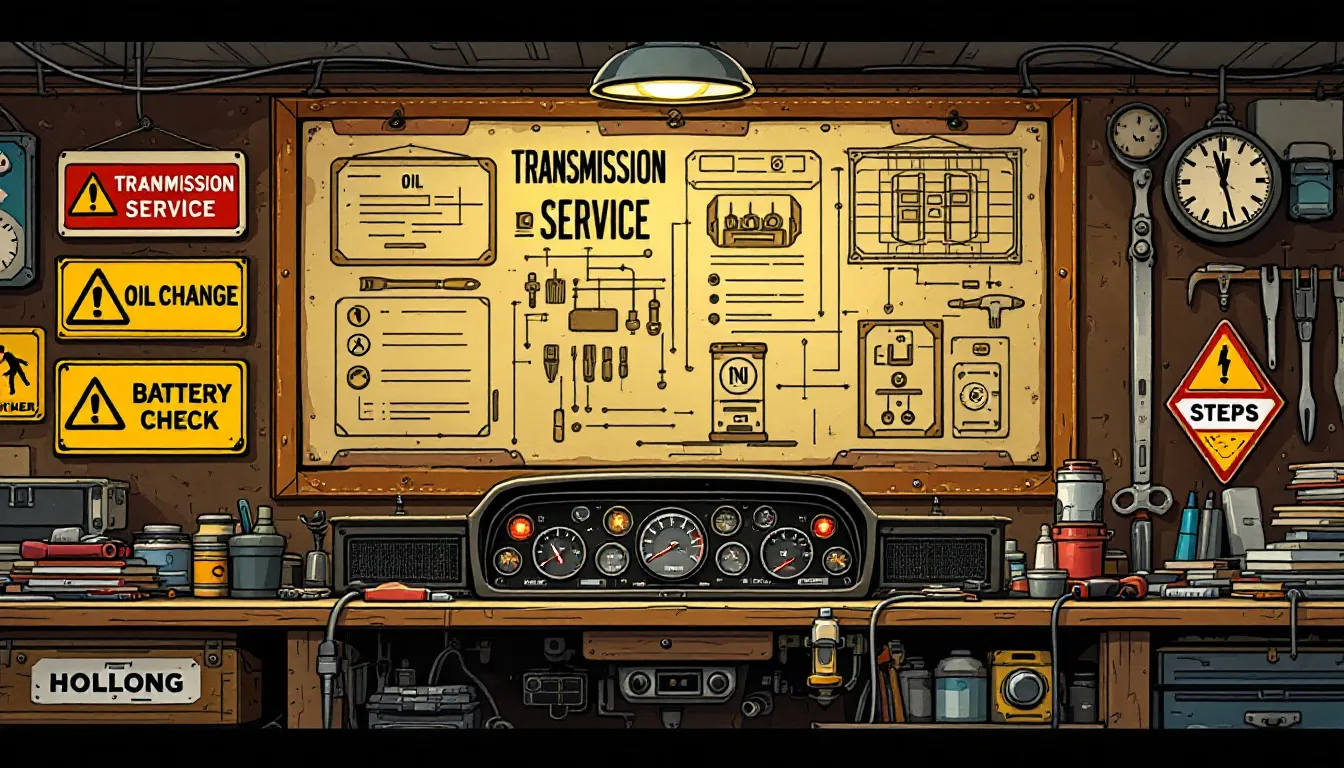
Recognizing the signs that you need immediate transmission service can prevent severe damage and costly repairs. Delayed engagement when shifting gears can indicate transmission issues requiring prompt attention. If the vehicle slips out of gear during driving, it may signal a serious problem needing immediate service.
Unusual noises like whining or grinding during gear shifts often denote underlying transmission troubles. A burning smell may suggest overheating, which should not be ignored. Visible transmission fluid leaks can compromise system function and signal the need for urgent service.
Seeking professional help immediately upon noticing any of these warning signs is essential.
Atlas Transmission Services
Atlas Transmission, located at 3180 S Military Trail, Lake Worth Beach, FL 33463, offers a comprehensive range of transmission services. With over 47 years of experience in transmission repair, Atlas Transmission provides expert solutions for all your transmission needs. Customers can contact Atlas Transmission at (561) 582-3499 for more information or to schedule a service.
Whether you need a routine transmission inspection, a transmission rebuild, or a transmission fluid change, Atlas Transmission’s team of specialists ensures top-notch service and customer satisfaction. Trusting your vehicle to experienced professionals can make all the difference in maintaining a smooth and efficient transmission system.
Summary
Maintaining your vehicle’s transmission is crucial for ensuring a smooth and reliable driving experience. Understanding how automatic transmissions work, recognizing common problems, and knowing when to seek professional help can save you from costly repairs and extend the life of your transmission. Regular maintenance, including checking transmission fluid levels and scheduling professional inspections, plays a vital role in keeping your transmission in top condition.
By following the tips and advice provided in this guide, you can take proactive steps to maintain your transmission’s health. Remember, timely intervention and preventive measures can make all the difference. Keep your transmission serviced with the help of experienced professionals like those at Atlas Transmission, and enjoy a worry-free driving experience.
Frequently Asked Questions
How often should I change my transmission fluid?
You should change your transmission fluid every 30,000 miles or as specified in your owner’s manual for optimal vehicle performance. Regular maintenance in this regard is crucial for prolonging the lifespan of your transmission.
What are common signs of transmission problems?
Common signs of transmission problems include unusual noises, erratic shifting, delayed engagement, slipping gears, and transmission fluid leaks. It is essential to address these issues promptly to prevent further damage.
Should I repair or replace my transmission?
The decision to repair or replace your transmission typically hinges on the vehicle’s age, mileage, and the severity of the damage. If the transmission is older or severely damaged, replacement may be the more prudent option.
Why is transmission fluid important?
Transmission fluid is crucial as it cools, lubricates, and facilitates smooth gear shifting, thereby preventing overheating and ensuring optimal vehicle performance.
How can I prevent transmission problems?
To prevent transmission problems, ensure regular maintenance, use the recommended transmission fluid, avoid heavy loads, and refrain from shifting gears while the vehicle is in motion. Implementing these practices can significantly extend the life of your transmission.


